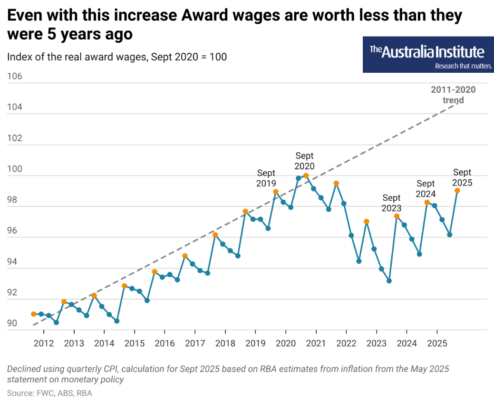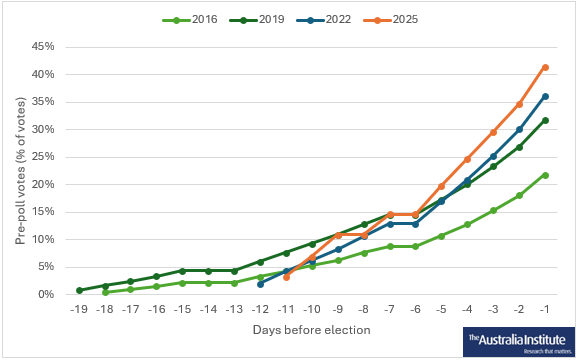On this episode, Paul Barclay is joined by former senator Christine Milne who brings her expertise and insights on how proportional representation and minority governments can be much more democratic, diverse, and help reduce corporate lobbying power.
This discussion was recorded on Monday 27 January 2025, and things may have changed since the recording.
Order What’s the Big Idea? 32 Big Ideas for a Better Australia now, via the Australia Institute website.
Guest: Christine Milne AO, Former Leader of the Australian Greens // @ChristineMilne
Host: Paul Barclay, Walkley Award winning journalist and broadcaster // @PaulBarclay
Show notes:
Power sharing in Australian parliament by Bill Browne and Richard Denniss, the Australia Institute (July 2024)
Representative, Still: The role of the Senate in our Democracy by Bill Browne and Ben Oquist, the Australia Institute (March 2021)

